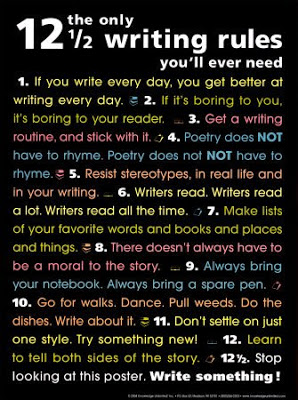 Recently I’ve gotten a whole slew of emails from readers asking for input on their writing. I figured I’d put some suggestions down in my blog to hopefully help them out as well as share with other readers . . .
Recently I’ve gotten a whole slew of emails from readers asking for input on their writing. I figured I’d put some suggestions down in my blog to hopefully help them out as well as share with other readers . . .
I get a lot of emails from readers asking for input on writing. How do they get started, how can they get published, what advice can I share? In some ways, there’s no simple way to answer this in a sentence or two. It’s like someone asking a surgeon for some input on performing open-heart surgery. “Well, let me see . . .” That’s what I often think. There are 300-page books on getting published, or writing romance, or marketing your books. So when I’m asked for “input”, I’m never sure what exactly to say.
So here are some basics that might help at least get you started. These are simple and basic, but nothing about writing and publishing is ever simple and basic. My hope is that they will encourage you in your writing journey.
#1. The number one thing it takes to be a successful writer is persistence. Talent helps, as does timing and luck. But reading is subjective, and the publishing industry is fickle. You need to “stay the course” and remain determined. So this means being patient and very, very persistent.
#2. Finish what you start. If it’s an article, finish that article. If it’s a coming-of-age novel, finish that novel. Finish. Because once you do, you’ll believe that you can finish another.
#3. I find it’s easy to compare your work-in-progress to another book out there. This will not only help you to identify what the book is about (what genre it fits in), but it also helps editors/agents/publishers know what “box” that your book fits in. And if it doesn’t fit into a box, make sure you rework it to fit into a box.
#4. Have huge goals and ambitions. You’ll need this as you wait. And wait.
#5. Have thick skin. Learn to take input from those you trust. Yet avoid being too discouraged. Take input and apply it to your writing, but don’t let it discourage you and stop you from continuing on.
#6. Once you have finished a project, DO YOUR HOMEWORK. There are a hundred books out there on how to get published. There are countless websites that can help out. Identify what box your book fits into, then start DOING YOUR HOMEWORK. This includes doing the following next few steps.
#7. Learn to craft a proposal. This includes a snappy cover letter, a synopsis of the book, who you are. Create the proposal.
#8. Research literary agents. Send your work out to them. You need to find an agent first. They will help you craft your work to try and get it published.
#9. Remain patient. Publishing takes forever. Being an author is about waiting. Waiting and waiting and waiting and waiting.
#10. As you wait, remain persistent. Start another project. Tweak your existing project. Write. Live life. Journal. Research publishing and writing. You can do 10,000 other things as you wait.
#11. Get prepared for rejection. Every single famous author has received rejection. Just know that it’s part of the business.
#12. If you don’t get an agent to represent your first work, that’s okay. I wrote 7 novels all the way through before having my first book published. Don’t give up. Remain committed. Most people give up because it takes too much time and too much energy and there’s no reward in it. But if you really, truly want to write, then write. It might take time to get published, but it can happen.
So there it is—a dozen things to hopefully help you in your writing journey. Those are all broad suggestions, and they sound very simple. In some ways they are. My encouragement is to remain committed, to do your homework, to finish what you start, and to not give up.
There’s a great quote that I often use. “Being a writer is like having homework for the rest of your life.” And I would agree with that. It seems to never get easier or faster or simpler. But I remain committed to this crazy craft called writing simply because I have to.